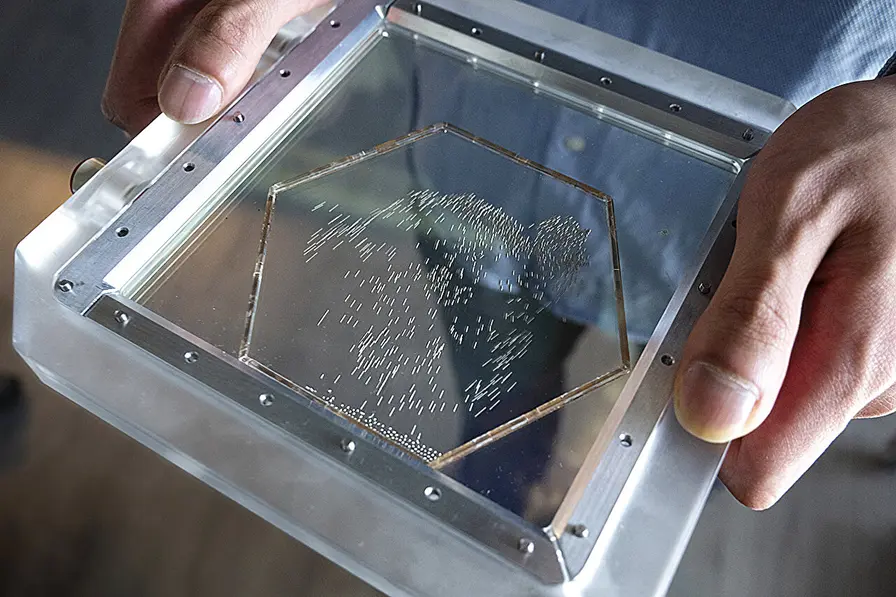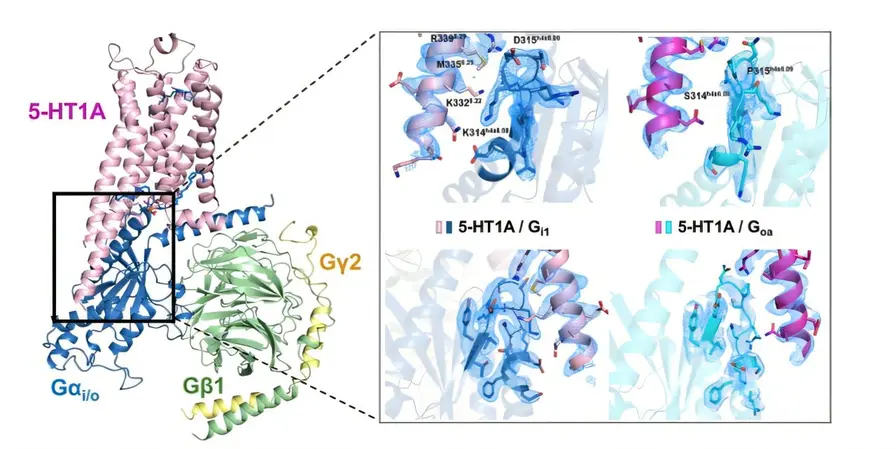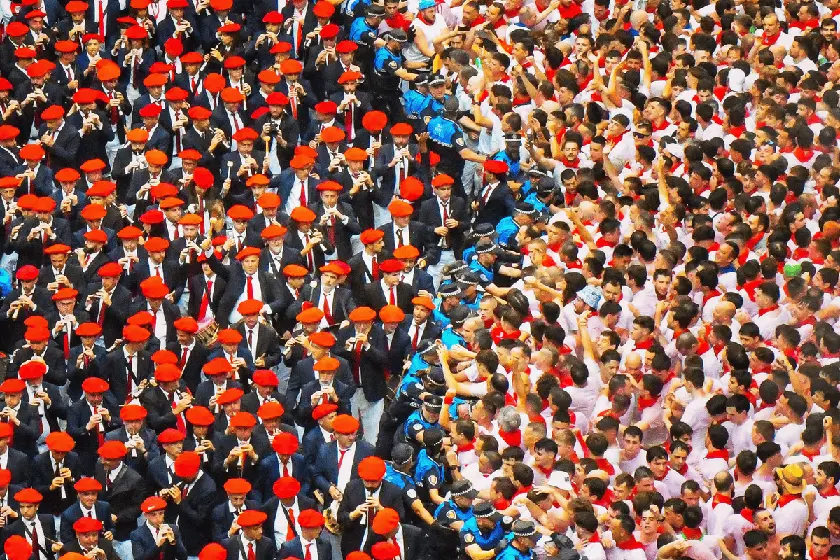T4K3.news
New research shows particles can act faster in crowds
Leiden University scientists discover a new state of matter where particles speed up when packed together.

Research from Leiden University shows that particles can actually accelerate when closely packed together.
New discovery reveals particles can speed up in crowds
Physicists from Leiden University have uncovered a remarkable new state of matter where particles enhance their movement instead of slowing down when they are in close proximity. Their research, published in Nature Physics, contradicts what we typically observe with crowds. Instead of hindering movement, tightly packed particles, like one-millimeter metal beads, can actually pass energy among themselves during elastic collisions, creating a phenomenon known as an 'active gas' state. In experiments, these beads, without the ability to move on their own, became highly dynamic when numerous beads were introduced, transitioning from a stationary state to one filled with chaotic motion. This curious behavior allows researchers to control the collective activity of the particles through precise manipulation of electric fields, resulting in structures resembling gas, liquid, and crystal states.
Key Takeaways
"This is an important discovery, because it reveals that there are still many unknown ways in which particles can organize themselves."
Morin emphasizes the significance of discovering new interactions in particle systems.
"We could obtain structures analogous to the three well-known states of matter by simply turning a knob on our power generator."
Morin explains the potential for controlling particle behavior in innovative ways.
This discovery challenges long-standing assumptions about particle dynamics in crowded environments. Traditionally, we expect more particles to lead to more chaos and slower movement, similar to cars in a jam. However, the Leiden team's findings suggest that there are unknown mechanisms of particle interaction that can lead to increased activity in certain conditions. This insight could have implications beyond physics, potentially influencing material science and biological applications where control over particle behavior is vital. As researchers begin to harness these principles, we may anticipate advancements in smart materials that can adapt and respond dynamically to their environments.
Highlights
- Crowding might just make particles busier, not slower.
- New research redefines our understanding of crowded matter.
- Particles in a jam could actually accelerate.
- Could this be the key to developing smart materials?
Research brings innovative yet uncertain prospects
As new discoveries about particle dynamics emerge, they suggest potential applications yet may raise questions about practical implementation and safety.
As this research progresses, it stands to reshape how we think about particle dynamics and its applications.
Enjoyed this? Let your friends know!
Related News

Israeli Forces Face Allegations of War Crimes

New Study Reveals How the Brain Awakens from Sleep

AI tools expand in workplaces

New findings on serotonin receptor could reshape mental health treatments

New Study Reveals Neural Mechanism in Fear Responses

Study shows crowds mimic liquid movements

Study discovers why some rivers split into multiple channels

Study shows SNAP aids cognitive health in older adults
